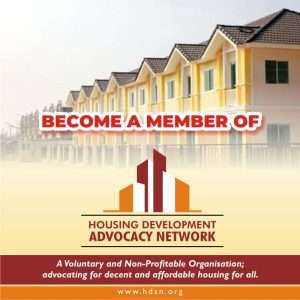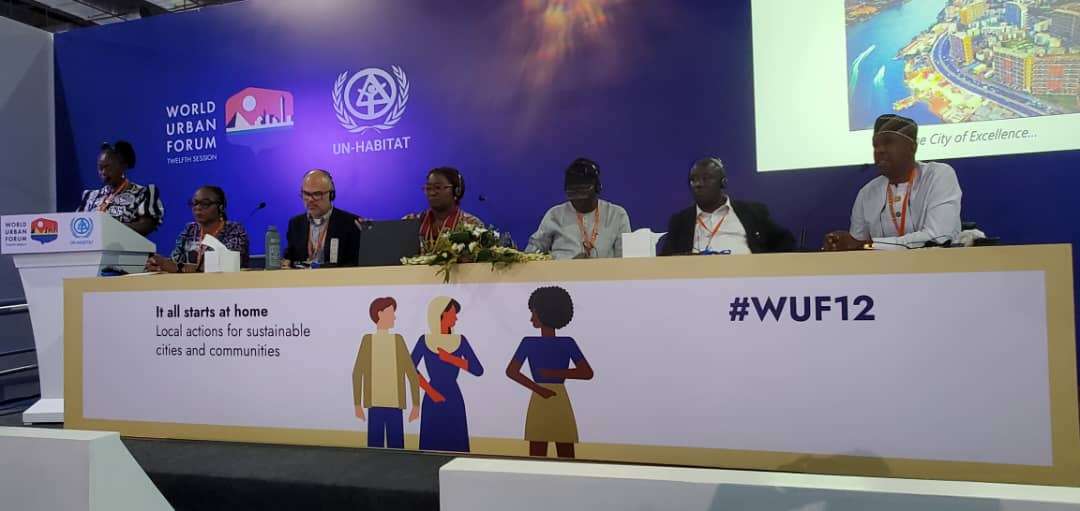… Hosted program that gave account of Governor Sanwo Olu’s activities in Housing and Physical Planning
The Lagos State Government, through its Ministry of Housing and Ministry of Physical Planning has showcased its achievements and vision for sustainable housing and urban planning at the World Urban Forum (WUF) 2024.
The event, held last Thursday, attracted a diverse group of stakeholders from the housing and urban development sectors under the theme “Our Lagos, A Home for All.”
Opening the two-hour session, Lagos State Commissioner for Housing, Hon. Moruf Akinderu-Fatai, presented a comprehensive account of Governor Babajide Sanwo-Olu’s administration’s milestones in housing and physical planning. “Our commitment to affordable housing is unwavering, as we partner with the Federal Mortgage Bank of Nigeria and other financial institutions to increase housing accessibility across Lagos,” he noted, emphasizing partnerships that support affordable housing, streamlined approval processes, and innovative financing mechanisms.

He was joined by Commissioner for Physical Planning and Urban Development, Dr. Abiodun Olumide, who shared the state’s progress in urban planning and the development of various master plans for Lagos. Dr. Olumide highlighted Lagos’s unique challenges as a densely populated urban center with limited land resources, stressing the importance of physical planning in creating an inclusive and livable city. “Our planning initiatives are essential in responding to rapid urbanization, creating Central Business Districts, and developing new towns to accommodate our growing population,” he explained.
The event featured a panel discussion with thought leaders and experts, including Prof. Joao Porto D’Alberqueque from the Urban Big Data Centre in the United Kingdom, Prof. Taibat Lawanson from the African Cities Research Consortium, Festus Adebayo, Convener of the Africa International Housing Show, and Ms. Suzanne Oluwole, Director of Trillium Real Estate Partners. Panelists discussed the necessity of data-driven urban planning and the creation of an enabling environment for the real estate sector.
Panelist Festus Adebayo emphasized the importance of accurate data in shaping effective housing policies. “Data is the backbone of sustainable housing and urban development,” he said. “For Lagos to continue to thrive, data collection and analysis must guide every decision in the housing and urban planning sector.”
Prof. Lawanson pointed to the role of community engagement in achieving social inclusion, stressing that citizen participation in planning can enhance project effectiveness and align developments with residents’ real needs. “Physical planning should include the voices of those it affects,” she argued. “Our communities must be involved in shaping their environments to create a truly inclusive Lagos.”
Lagos has long faced challenges from rapid urbanization, a population exceeding 20 million, and land scarcity. Yet, as Commissioner Akinderu-Fatai described, the state has turned these challenges into opportunities through strategic planning initiatives and policies aimed at making affordable housing more accessible. Projects such as land-pooling exercises to support vertical development in areas with limited land, and the use of local, durable materials in construction, are part of Lagos’s broader strategy to meet the Sustainable Development Goal (SDG) 11.1 for affordable housing and basic services.

Plan implementation efforts were also lauded, including measures to mitigate flooding in vulnerable areas, improve basic services in underserved communities, and redevelop slum areas, all to make Lagos a true “home for all.” The Ministry of Physical Planning has opened several new townships and established multiple business districts to disperse economic activities beyond the crowded city center. This, according to the ministry, reduces housing pressures in core urban areas while promoting growth in emerging parts of Lagos.
A core objective of the Lagos event was to project the state’s best practices in participatory planning, with a focus on localization of SDG 11.1. The session offered attendees a platform to exchange ideas on inclusive urban planning and to explore potential collaborations aimed at addressing challenges of land scarcity and rapid urbanization.
Panelists and speakers alike agreed that a collaborative approach involving government, private sector, and communities is essential to achieving a livable, resilient, and sustainable Lagos.
Prof. Joao Porto D’Alberqueque commended Lagos’s innovative land-pooling approach and the government’s efforts to foster partnerships that support affordable housing. “Lagos is setting an example in sustainable urban management, with lessons that can be adapted by cities facing similar urbanization challenges,” he remarked.
Ending the session on a high note, the Lagos State delegation invited stakeholders to contribute their expertise and resources toward making Lagos a model for urban resilience in Africa.




